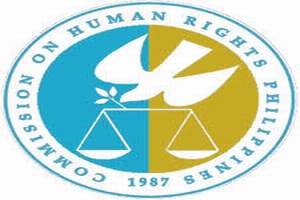MANILA -- Justice Secretary Menardo Guevarra on
Thursday said the inmates convicted of heinous crimes are not entitled
to benefit from the law that shortens the prison terms of inmates
through the good conduct time allowance (GCTA) system.
entitled
to benefit from the law that shortens the prison terms of inmates
through the good conduct time allowance (GCTA) system.
"Take note on the issue on the eligibility (of prisoners) under the 2013 law that the expanded GCTA. Di magbe-benefit from that law ang certain persons. These are recidivists, habitual delinquents, escapees and person charged of heinous crime. Not covered by that law. Dun pa lang, may process of elimination, (Eligibility under the 2013 law on expanded GCTA defines who are covered and said that among those who cannot benefit from that law are certain persons, such as recidivists, habitual delinquents, and persons charged of heinous crimes. That is a process of elimination)," Guevarra explained.
He said while there is no existing definition of heinous crimes following the suspension of the Heinous Crimes Act (RA 7659), the term appeared in the expanded GCTA.
"I have given instruction to the BuCor (Bureau of Corrections) chief (Nicanor Faeldon) that review of GCTA for high profile or heinous crimes be conducted with a lot of care, caution, and circumspection," Guevarra said.
Justice Undersecretary Markk Perete, meanwhile, clarified that while the law imposing the death penalty on heinous crimes is suspended, it still has a legal definition which may be used in the BuCor's guidelines which are "crimes so grave that show extreme moral depravity of the accused,"
Using the same criterion, those doing illegal trade of drugs while serving their sentence are also not eligible.
"If they made violation of the rules of the penitentiary, that may somehow affect your GCTA. It is up to BuCor to consider that point. It might also apply to persons deprived of liberty who made the infraction while incarcerated," Guevarra said when asked to comment on whether the 13 witnesses against former justice secretary Leila de Lima who admitted to trading in drugs while serving their sentence are entitled to GCTA.
In the case of former Calauan mayor Antonio Sanchez, the question of whether he is eligible for GCTA has not been taken up yet.
Guevarra also shrugged off reports that the 73-year-old rape-slay convict has been released as early as June.
He added that while the processing of the GCTA credits of prisoners is an internal process of the BuCor, the DOJ may soon review the guidelines in place at BuCor regarding prisoners’ GCTA.
"Within the month, we will complete taking a look at the guidelines," he said but clarified that "until (actually) rejected or approved, the DOJ and BuCor officials are presumed to have done all right in processing the GCTA," Guevarra added.
Meanwhile, he said he welcomes the threat of a probe into the controversy by opposition lawmakers.
"The DOJ has never insisted on the release of Mayor Sanchez and he doesn't have to threaten this department. The conduct of a legislative inquiry is most welcome, as the people are reacting to the effects of the law that the Congress itself enacted in 2013. This maybe a good time for the Congress to review its own creation," Guevarra said.
Opposition senator and former justice secretary Franklin Drilon earlier said he will file a resolution for the conduct of investigation into the possible release of the former mayor.
He also asked the DOJ to hold the possible release of Sanchez while the Senate investigation has not yet concluded.
Sanchez was sentenced to seven counts of reclusion perpetua or up to 40 years imprisonment by the Pasig Regional Trial Court in 1995 for the rape-slay of University of the Philippine (UP) Los Baños student Eileen Sarmenta and the murder of her boyfriend, Allan Gomez in 1993.
Four years later, the Supreme Court upheld the lower court's ruling against Sanchez.
During a random inspection in 2010, jail officers seized a kilo of shabu worth PHP1.5 million concealed in one of the Blessed Virgin Mary statues inside the former mayor's cell at the New Bilibid Prison. (PNA)
 entitled
to benefit from the law that shortens the prison terms of inmates
through the good conduct time allowance (GCTA) system.
entitled
to benefit from the law that shortens the prison terms of inmates
through the good conduct time allowance (GCTA) system."Take note on the issue on the eligibility (of prisoners) under the 2013 law that the expanded GCTA. Di magbe-benefit from that law ang certain persons. These are recidivists, habitual delinquents, escapees and person charged of heinous crime. Not covered by that law. Dun pa lang, may process of elimination, (Eligibility under the 2013 law on expanded GCTA defines who are covered and said that among those who cannot benefit from that law are certain persons, such as recidivists, habitual delinquents, and persons charged of heinous crimes. That is a process of elimination)," Guevarra explained.
He said while there is no existing definition of heinous crimes following the suspension of the Heinous Crimes Act (RA 7659), the term appeared in the expanded GCTA.
"I have given instruction to the BuCor (Bureau of Corrections) chief (Nicanor Faeldon) that review of GCTA for high profile or heinous crimes be conducted with a lot of care, caution, and circumspection," Guevarra said.
Justice Undersecretary Markk Perete, meanwhile, clarified that while the law imposing the death penalty on heinous crimes is suspended, it still has a legal definition which may be used in the BuCor's guidelines which are "crimes so grave that show extreme moral depravity of the accused,"
Using the same criterion, those doing illegal trade of drugs while serving their sentence are also not eligible.
"If they made violation of the rules of the penitentiary, that may somehow affect your GCTA. It is up to BuCor to consider that point. It might also apply to persons deprived of liberty who made the infraction while incarcerated," Guevarra said when asked to comment on whether the 13 witnesses against former justice secretary Leila de Lima who admitted to trading in drugs while serving their sentence are entitled to GCTA.
In the case of former Calauan mayor Antonio Sanchez, the question of whether he is eligible for GCTA has not been taken up yet.
Guevarra also shrugged off reports that the 73-year-old rape-slay convict has been released as early as June.
He added that while the processing of the GCTA credits of prisoners is an internal process of the BuCor, the DOJ may soon review the guidelines in place at BuCor regarding prisoners’ GCTA.
"Within the month, we will complete taking a look at the guidelines," he said but clarified that "until (actually) rejected or approved, the DOJ and BuCor officials are presumed to have done all right in processing the GCTA," Guevarra added.
Meanwhile, he said he welcomes the threat of a probe into the controversy by opposition lawmakers.
"The DOJ has never insisted on the release of Mayor Sanchez and he doesn't have to threaten this department. The conduct of a legislative inquiry is most welcome, as the people are reacting to the effects of the law that the Congress itself enacted in 2013. This maybe a good time for the Congress to review its own creation," Guevarra said.
Opposition senator and former justice secretary Franklin Drilon earlier said he will file a resolution for the conduct of investigation into the possible release of the former mayor.
He also asked the DOJ to hold the possible release of Sanchez while the Senate investigation has not yet concluded.
Sanchez was sentenced to seven counts of reclusion perpetua or up to 40 years imprisonment by the Pasig Regional Trial Court in 1995 for the rape-slay of University of the Philippine (UP) Los Baños student Eileen Sarmenta and the murder of her boyfriend, Allan Gomez in 1993.
Four years later, the Supreme Court upheld the lower court's ruling against Sanchez.
During a random inspection in 2010, jail officers seized a kilo of shabu worth PHP1.5 million concealed in one of the Blessed Virgin Mary statues inside the former mayor's cell at the New Bilibid Prison. (PNA)
PNA Website
links:
OTHER HUMAN RIGHTS PROMOTIONS WEBSITES
PROTECTION AND PROMOTION OF HUMAN RIGHTS
-----------------------------------------------------------------------------------------------
------------------------------------------------------------
-----------------------------------
-----------------------------------


























































0 comments:
Post a Comment